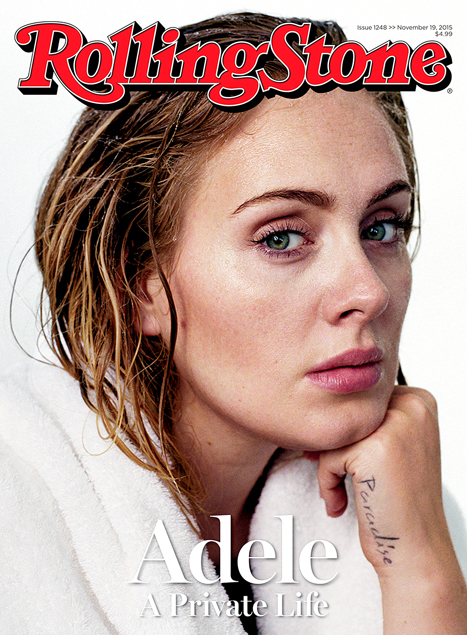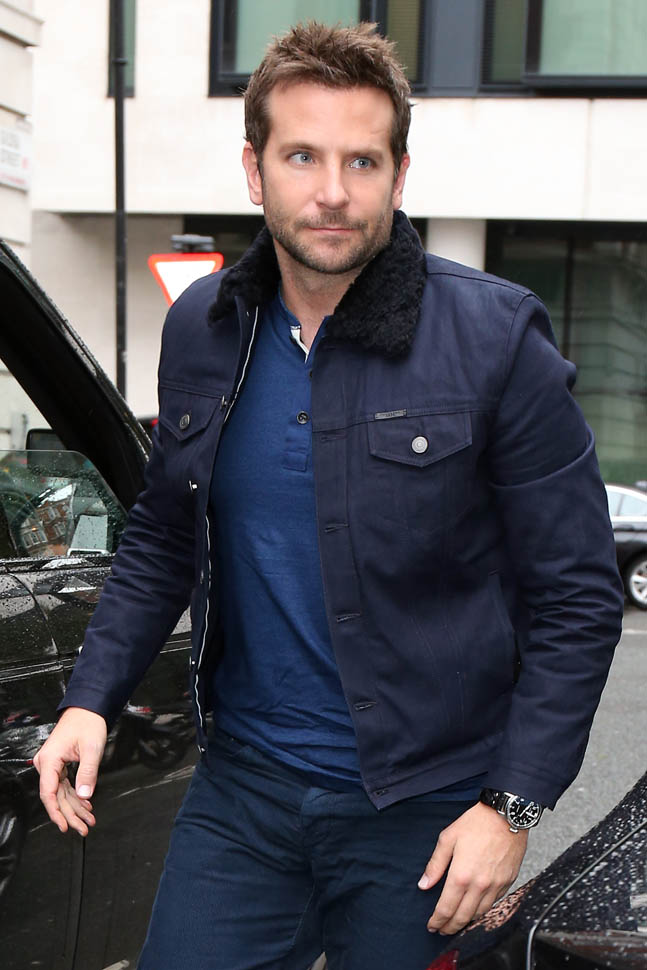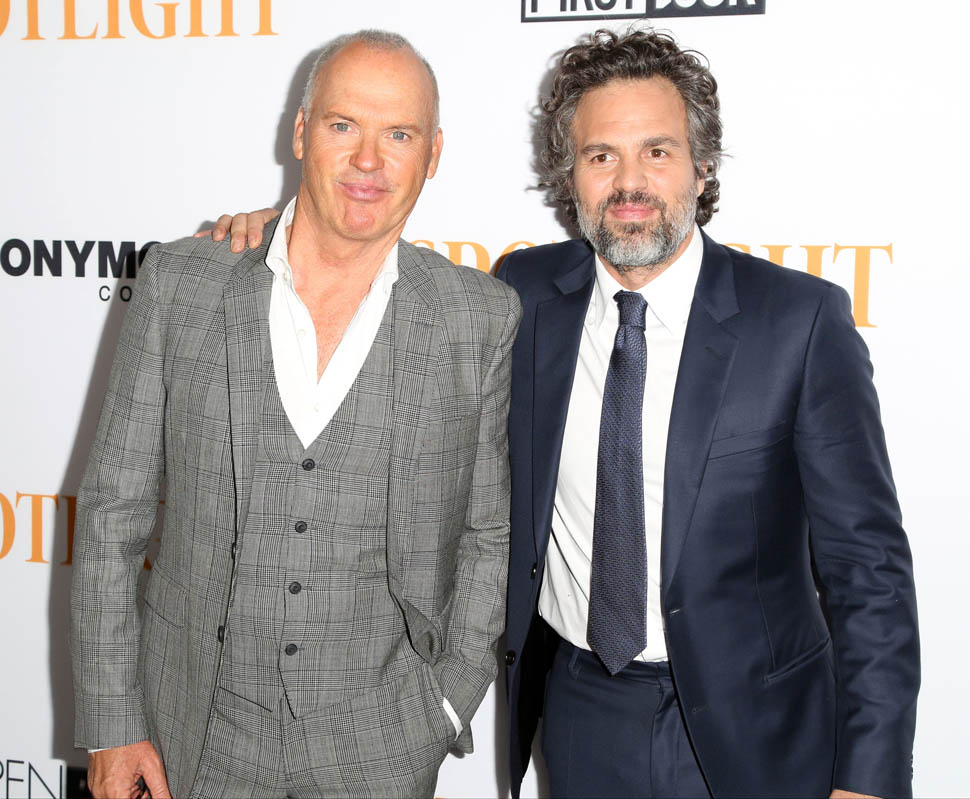Adele gives the best interview



“Do you think everyone will be disappointed that I’m happy?”
This is what Adele asks Brian Hiatt who wrote the cover article for her new Rolling Stone profile. It’s moments like these that make this interview so special. Because, as we all know now, celebrity interviews, most of the time, are a fake dance agreed upon by all parties – the star, the media, the audience. Once in a while though, you get an artist like Adele who understands she’s doing this for promotion and, certainly, takes precautions for protection, but doesn’t let that compromise her authenticity or vulnerability. The result, amazingly, for the fan, is that you feel like it’s enough. You’ve given me enough, Adele, I don’t actually need any more, thank you.
How often does that happen?
A couple of weeks ago, the Daily Mail published a piece on Adele, right when Hello came out, that enraged me. Like I wrote about the Deadline post on Angelina Jolie earlier this week there is a “tone”. That f-cking tone. Click here to read it because it’s a good lead-in to the Rolling Stone article, I promise.
Basically they’re saying she “wasted” all kinds of money and pissed people off because she took her sweet time making her music. Because she wanted it to be the best music.
AND….?
What is the goddamn problem, actually???
One of the people who was called on to work with her is Blur’s Damon Albarn. In the end, she didn’t end up using any of the songs they came up with together so he decided to tell the Daily Mail that her music is “very middle of the road” and that she’s “very insecure”. Then some other unnamed industry executive comments that in being so selective about what she put on the album, Adele’s behavior was “not etiquette”.
Let me just recap that for you. Adele and Damon wrote some songs together for her own album on which she has total creative control. Because those songs didn’t make the cut, now she’s insecure and rude?
Yeah that’s a tone. F-CK THAT TONE. Which is basically what she tells Rolling Stone of the experience:
"It ended up being one of those 'don't meet your idol' moments," she says. "And the saddest thing was that I was such a big Blur fan growing up. But it was sad, and I regret hanging out with him." They didn't finish a single song. "No! None of it was right. None of it suited my record. He said I was insecure, when I'm the least-insecure person I know. I was asking his opinion about my fears, about coming back with a child involved — because he has a child — and then he calls me insecure?"
I’m the least insecure person I know.
THAT. That, to me, is everything. Adele is not afraid to be confident. She’s not afraid to be confident enough to tell Damon Albarn that she wasn’t feeling what they were doing together. And she wasn’t afraid to tell Bruno Mars that her lyric was better than his:
She and Bruno Mars made an attempt at an uptempo song but instead created the unapologetically dramatic ballad "All I Ask," complete with a climactic key change and Adele engaging in what she calls some of her most "showoff-y" vocals. "I've never sung like that before," she says. "Never sang that high. The funny thing is that Bruno was hitting those notes in the studio too." ("She's a superstar and sassy as f-ck," says Mars, who recalls a brief disagreement over one lyric. "Once she recorded it, it became one of my favorite parts of the song. She told me she hopes I'm in the audience when she sings that line live so she can flick me off.")
Where does that confidence come from? Well, if you ask Mindy Kaling, it comes from work. Adele can flick off Bruno Mars because she’s put in the time. 18 months ago, she met with Rick Rubin who confirmed for her that it just wasn’t good enough. So she decided to go back to work, and work on it for as long as it would take to satisfy her. That’s where the confidence comes from. And that’s why she can insist on being right. And, also, bossy:
“I believe that everyone should be treated the same, including race and sexuality." She recalls not being taken seriously in business meetings full of men, of encountering an attitude of "what do you know?" "It's like, 'Well, I'm the fucking artist,' " she says, sitting up straighter in her chair. " 'So I f-cking know everything, actually! Like, don't f-cking talk down to me!' "
She enjoyed working with Sia for her new album, even though the songs didn't make it (one, "Alive," became a single for Sia instead). Adele realized she had never collaborated with a woman before. "I actually love the dynamic of us both being in there and just f-cking being bossy," she says with a laugh. "And it's all these male producers, and they're all f-cking sh-tting themselves 'cause we're in there."
What’s wonderful about Adele though (it’s a long list) is that her earned confidence doesn’t get in the way of her self-awareness. Consider her relationship with fame and how she’s wary of it but also takes responsibility for it:
"People think I hate being famous," Adele says. "And I don't. I'm really frightened of it. I think it's really toxic, and I think it's really easy to be dragged into it." Early in her career, she faced frequent musical comparisons to Amy Winehouse, whom she met only a few times: "Watching Amy deteriorate is one of the reasons I'm a bit frightened. We were all very entertained by her being a mess. I was f-cking sad about it, but if someone showed me a picture of her looking bad, I'd look at it. If we hadn't looked, then they'd have stopped taking her picture. That level of attention is really frightening, especially if you don't live around all that showbiz stuff."
How many other artists in Adele’s position would be able to take such an accountable perspective to that situation? What they do is blame the media and the public. What they never do is reflect that back upon themselves. Adele considers herself part of the “we”. And that is why we believe her. We believe her because she’s telling us that she’s constantly self-assessing and re-assessing. That her success hasn’t narrowed her self-view. Instead, she’s keenly aware of what made her - hard work, of course, and talent, obviously, and also… this:
“But sometimes I'm curious to know if I would have been as successful if I wasn't plus-size. I think I remind everyone of themselves. Not saying everyone is my size, but it's relatable because I'm not perfect, and I think a lot of people are portrayed as perfect, unreachable and untouchable."
As an artist, it can’t be easy to have to confront that. To not just cling to the idea that it was Just and Only about the music and not wonder if her appearance had anything to do with it. What she’s saying here is that her size makes people comfortable. That they are unthreatened and unintimidated by her. Implied in this observation then is a gracious acknowledgement that other talented artists who may not be as physically “relatable” might have their own challenges to bear. God she is generous, isn’t she? SO generous.
I could devote today’s entire blog to this Rolling Stone profile, it’s that good. And I might come back to it in a few days because I want to talk about her wistfulness. It’s so refreshing. But I should stop now so you can go enjoy it yourself first. Go read here.

